Table Of Content
- Recognize the Symptoms of Hypothermia
- Understanding the Danger
- Recognizing the Signs
- Responding Promptly
- Understand How Cold Weather Impacts the Body
- Recognize the Symptoms of Hypothermia
- Learn How to Avoid Hypothermia While Camping
- Essential Cold Weather Safety Tips for Campers
- Learn How to Avoid Hypothermia While Camping
- Recognize the Symptoms of Hypothermia
- Understand How Cold Weather Impacts the Body
- Essential Cold Weather Safety Tips for Campers
- Knowing When to Seek Shelter in Cold Conditions
- Proper Dressing Techniques to Prevent Hypothermia
- Effective Ways to Keep Warm in Cold Weather
- Essential Cold Weather Safety Tips for Campers
- Recognize the Symptoms of Hypothermia
- Understand How Cold Weather Impacts the Body
- Learn How to Avoid Hypothermia While Camping
- Knowing When to Seek Shelter in Cold Conditions
- Proper Dressing Techniques to Prevent Hypothermia
- Signs Your Body is Losing Heat Too Quickly
- Effective Ways to Keep Warm in Cold Weather
- Knowing When to Seek Shelter in Cold Conditions
- Recognize the Symptoms of Hypothermia
- Understanding How Cold Weather Impacts the Body
- Essential Cold Weather Safety Tips for Campers
- Proper Dressing Techniques to Prevent Hypothermia
- Proper Dressing Techniques to Prevent Hypothermia
- Layer Up
- Wear a Hat and Gloves
- Insulate Your Feet
- Avoid Cotton
- Signs Your Body is Losing Heat Too Quickly
- Feeling the Chill: How to Recognize Hypothermia
- Avoiding the Freeze: Tips to Avoid Hypothermia
- Effective Ways to Keep Warm in Cold Weather
- Layer Up Smartly
- Insulate Your Body Heat
- Keep Your Head and Extremities Covered
- Fuel Up with Warm Foods and Drinks
- Stay Active to Generate Heat
- Frequently Asked Questions (FAQs)
Welcome fellow adventurers! As an experienced outdoorsman, I understand the importance of staying safe and prepared during camping trips, especially in cold weather conditions. One of the most threatening risks in such environments is hypothermia, a condition that can be life-threatening if not recognized and treated promptly.
In this blog post, we will delve into essential tips on how to recognize and avoid hypothermia while camping in cold weather. By understanding the symptoms, taking preventive measures, and knowing what to do in case of an emergency, you can ensure a safe and enjoyable outdoor experience.
Whether you are a seasoned camper or just starting your outdoor journey, being informed about hypothermia and cold weather safety is crucial. It can make a significant difference in your well-being and survival when facing unexpectedly harsh weather conditions. So, let’s equip ourselves with the knowledge and skills needed to stay warm and safe during our camping adventures!
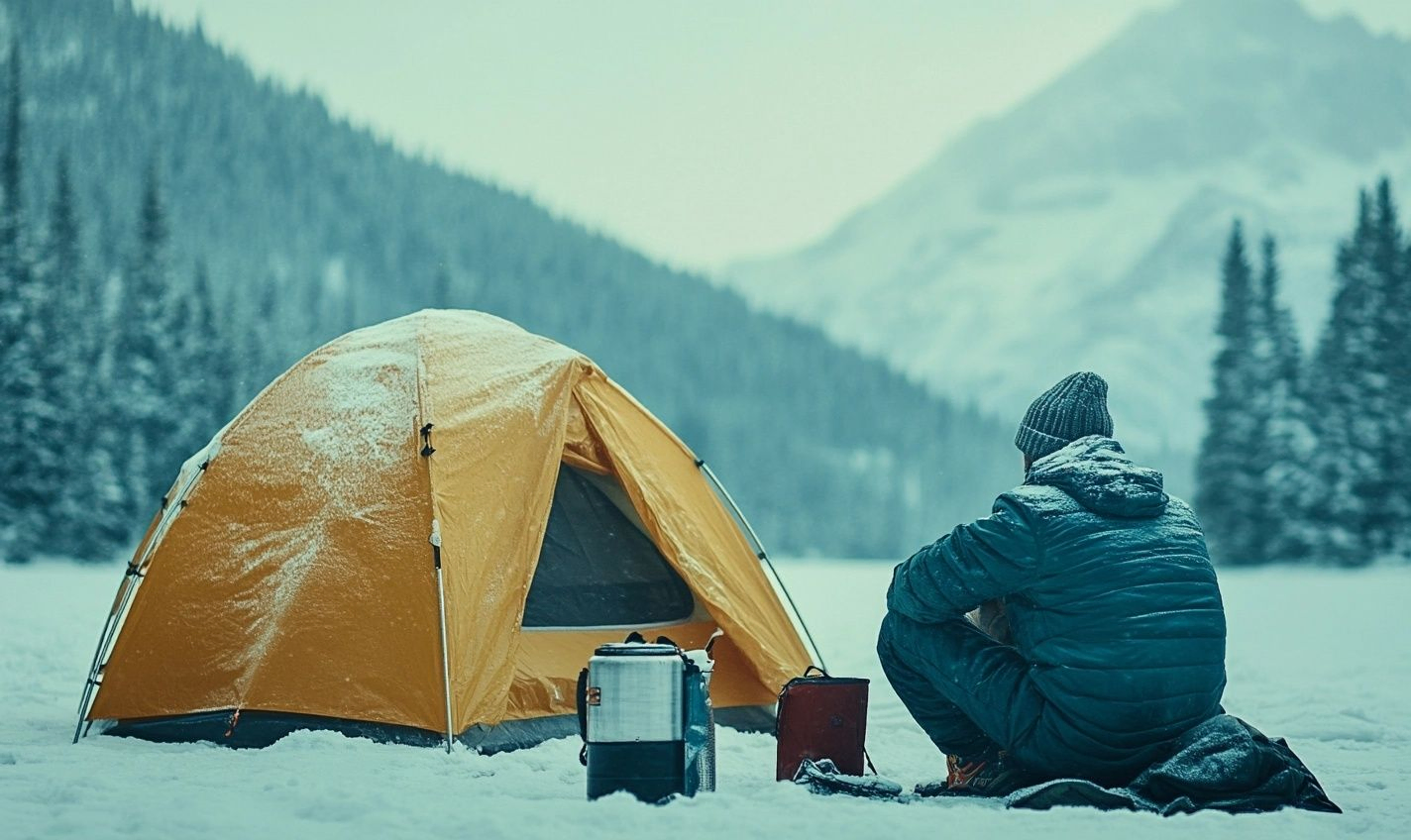
Recognize the Symptoms of Hypothermia
Imagine this: You’re out camping in the wilderness, surrounded by towering trees and the sounds of nature. But suddenly, the temperature drops, and you start feeling colder than usual. You might brush it off as just the chilly weather, but what if it’s actually the early signs of hypothermia creeping in?
Understanding the Danger
Hypothermia is a serious condition where your body loses heat faster than it can produce it, causing your core temperature to drop dangerously low. In cold weather, especially when camping, hypothermia can sneak up on you without warning.
Recognizing the Signs
But how do you know if you or someone in your camping group is experiencing hypothermia? Keep an eye out for these key symptoms:
– Shivering uncontrollably
– Slurred speech
– Confusion or memory loss
– Drowsiness or exhaustion
– Weak pulse
– Shallow breathing
Responding Promptly
If you notice any of these signs, it’s crucial to act quickly to prevent hypothermia from worsening. Here’s what you can do:
1. Get to a Warm, Dry Place: Move to a sheltered area away from the cold and wind.
2. Remove Wet Clothing: Change into dry, warm clothes to help raise your body temperature.
3. Wrap Up in Blankets: Use extra layers or blankets to insulate your body and retain heat.
4. Drink Warm Beverages: Sip on hot drinks like tea or soup to warm up from the inside.
5. Seek Medical Help: If symptoms persist or worsen, seek help immediately.
Remember, hypothermia can be life-threatening, so it’s essential to recognize the signs early and take action. Stay safe and warm during your camping adventures!
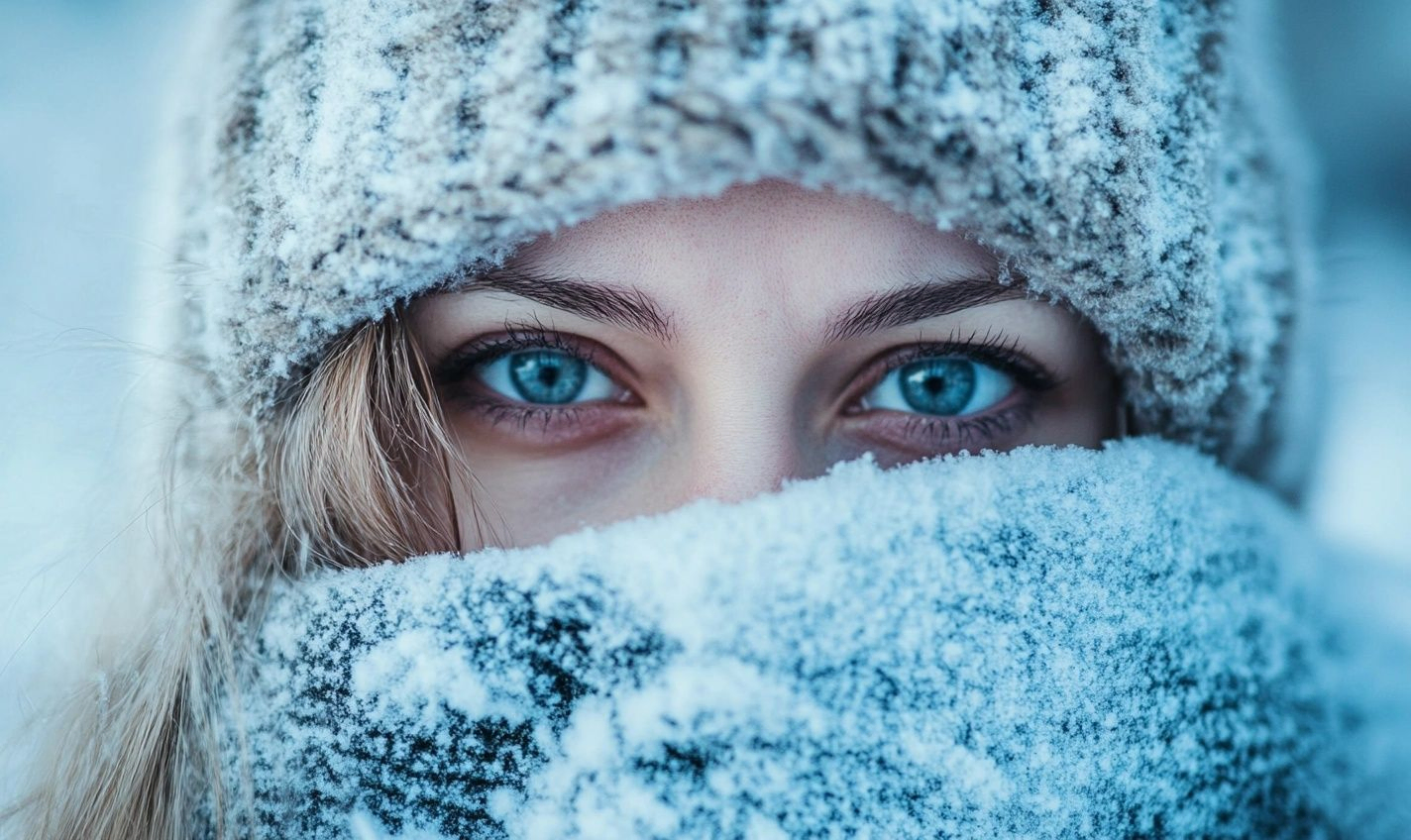
Understand How Cold Weather Impacts the Body
Camping in cold weather can be adventurous and exciting, but it also comes with certain risks, especially when it comes to the impact it can have on our bodies. It’s crucial to be aware of how the cold affects us to ensure a safe and enjoyable camping experience.
Recognize the Symptoms of Hypothermia
Hypothermia is a serious condition that occurs when our body loses heat faster than it can produce it, causing our core temperature to drop to dangerously low levels. Knowing the signs of hypothermia can help you take prompt action to prevent further complications:
- Intense shivering
- Slurred speech
- Confusion
- Weakened pulse
Learn How to Avoid Hypothermia While Camping
Avoiding hypothermia is all about being proactive and prepared. By taking the following precautions, you can significantly reduce the risk of experiencing hypothermia during your camping trip:
- Layer your clothing to retain body heat.
- Stay dry by avoiding dampness and moisture.
- Keep moving to generate internal warmth.
- Stay hydrated and well-nourished to maintain energy levels.
Essential Cold Weather Safety Tips for Campers
When venturing into the great outdoors during colder months, it’s essential to equip yourself with the necessary knowledge and gear to stay safe and warm:
– Ensure you have a reliable shelter to shield you from the elements.
– Pack high-energy snacks to fuel your body and combat heat loss.
– Familiarize yourself with proper fire-building techniques to create warmth.
Understanding how cold weather affects the body is the first step in ensuring a safe and enjoyable camping experience. By recognizing the symptoms of hypothermia, learning how to avoid it, and following essential cold weather safety tips, you can better prepare yourself for the challenges of camping in chilly conditions.
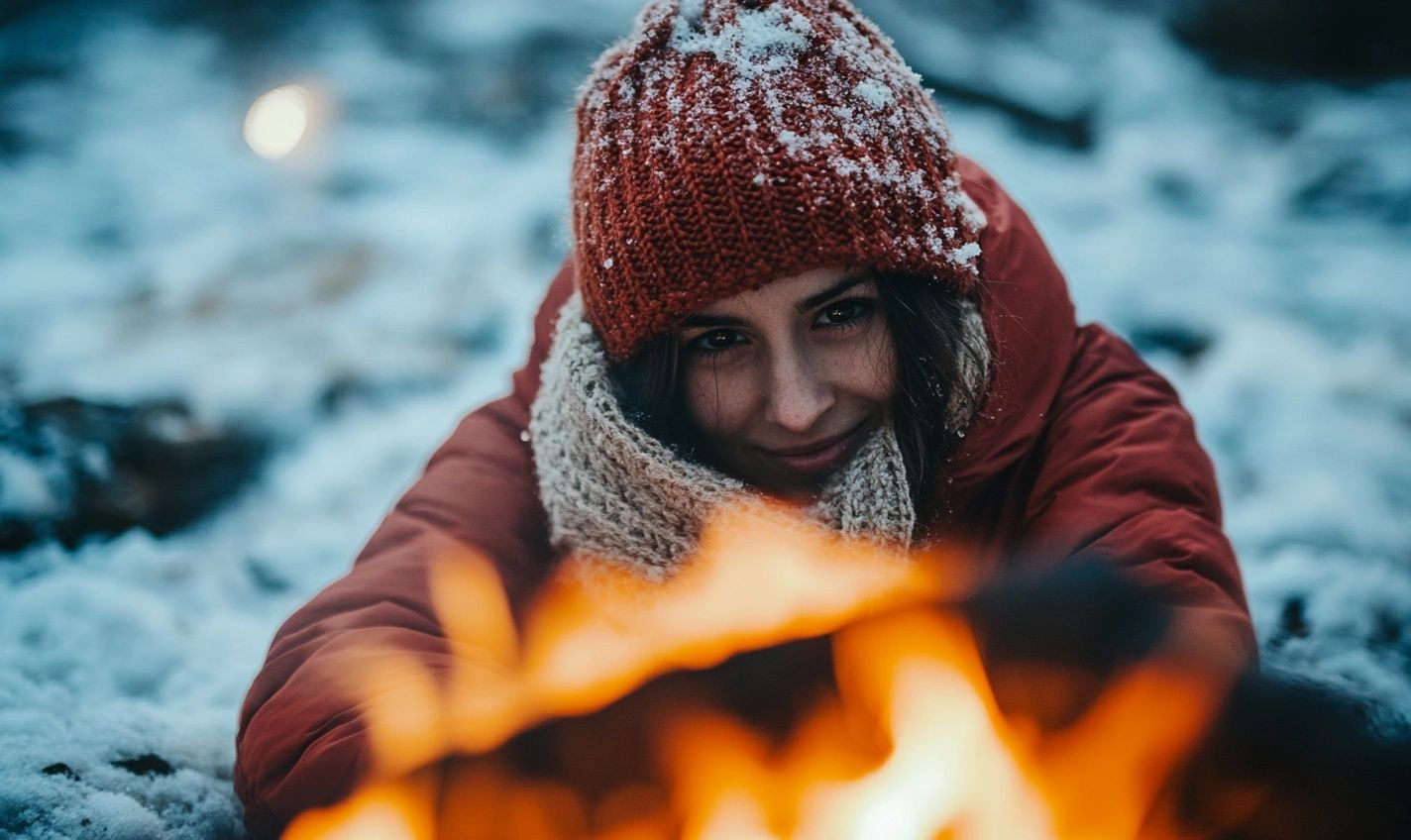
Learn How to Avoid Hypothermia While Camping
When you’re out in the great outdoors, especially in colder climates, it’s crucial to be aware of the risks of hypothermia. Avoiding hypothermia should be a top priority to ensure a safe and enjoyable camping experience.
Recognize the Symptoms of Hypothermia
Feeling confused, shivering uncontrollably, and experiencing slurred speech are all signs of hypothermia. If you or a fellow camper show these symptoms, take immediate action.
Understand How Cold Weather Impacts the Body
Cold weather can quickly drain your body’s heat, leading to dangerous drops in core temperature. Proper preparation and knowledge can help you stay safe.
Essential Cold Weather Safety Tips for Campers
- Layer clothing to trap heat
- Avoid cotton as it retains moisture
- Stay dry to prevent heat loss
Knowing When to Seek Shelter in Cold Conditions
If the weather suddenly worsens or you start feeling excessively cold, don’t hesitate to seek shelter. Your safety should always come first.
Proper Dressing Techniques to Prevent Hypothermia
- Wear moisture-wicking base layers
- Add insulating layers for warmth
- Top it off with a waterproof and windproof outer layer
Effective Ways to Keep Warm in Cold Weather
Engage in physical activity to generate body heat, drink warm liquids, and snuggle up in a sleeping bag to keep warm during chilly nights.
Remember, staying warm is not just about comfort—it’s about staying safe and preventing a potentially life-threatening condition like hypothermia. By taking the necessary precautions and being vigilant, you can enjoy your camping trip to the fullest without the risk of falling victim to the cold.
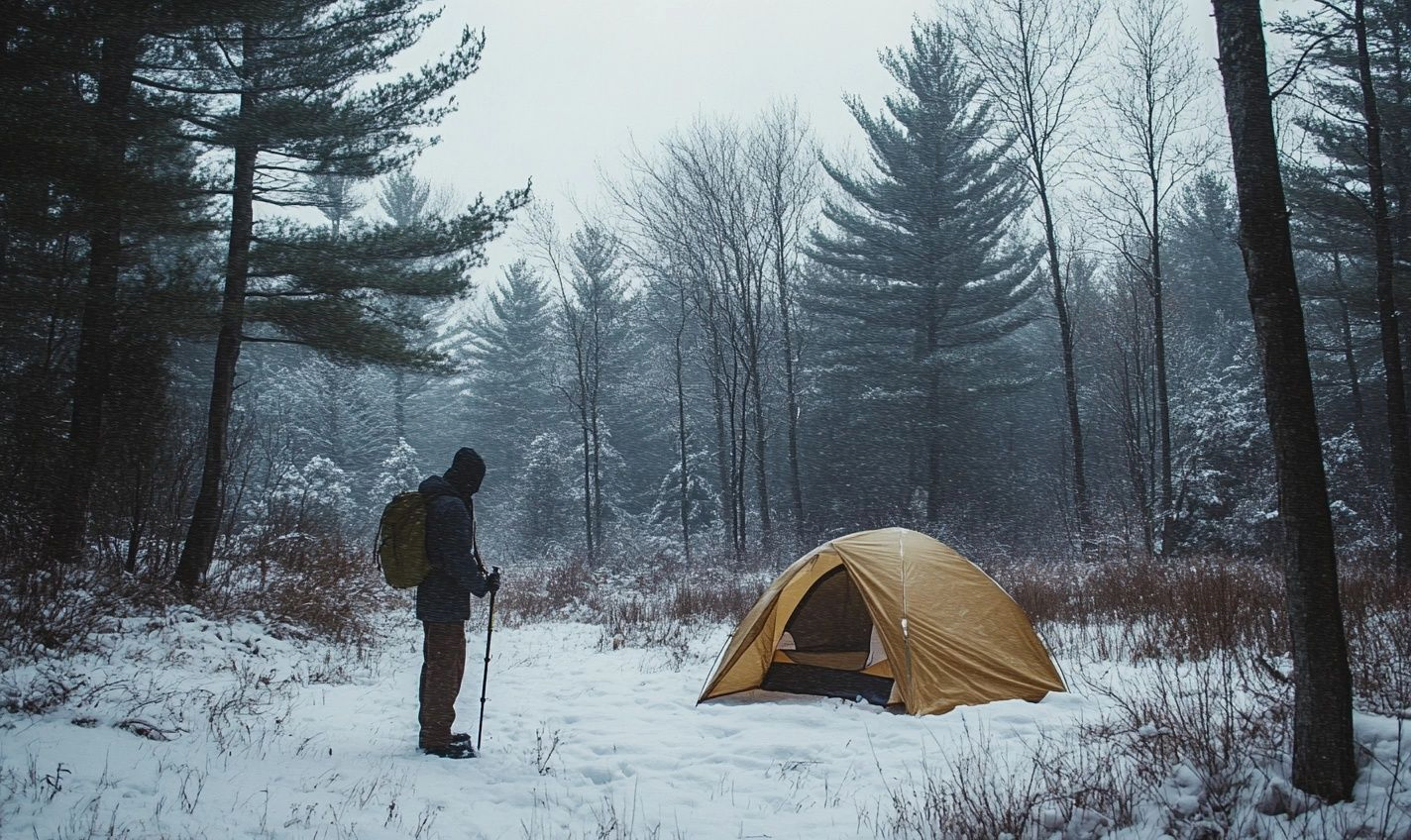
Essential Cold Weather Safety Tips for Campers
When you embark on a camping trip during the cold season, hypothermia becomes a significant concern. To ensure your safety and enjoyment, here are crucial cold weather safety tips every camper should know:
Recognize the Symptoms of Hypothermia
First and foremost, it’s vital to be able to recognize hypothermia. Shivering, confusion, slurred speech, and numb extremities are all signs to watch out for.
Understand How Cold Weather Impacts the Body
Cold weather can have a profound effect on your body, causing it to lose heat rapidly. Understanding this impact can help you take necessary precautions.
Learn How to Avoid Hypothermia While Camping
To avoid hypothermia, layers are your best friend. Dressing in moisture-wicking fabrics, avoiding cotton, and staying dry at all times are essential.
Knowing When to Seek Shelter in Cold Conditions
Pay attention to the weather forecast and be prepared to seek shelter if conditions worsen. Your safety should always be a top priority.
Proper Dressing Techniques to Prevent Hypothermia
Layering your clothing, starting with a moisture-wicking base layer, followed by an insulating layer, and finishing with a waterproof outer layer, is key to preventing hypothermia.
Signs Your Body is Losing Heat Too Quickly
If you start to feel extremely cold, notice excessive shivering, or experience disorientation, these are signs that your body is losing heat too quickly. Take action immediately.
Effective Ways to Keep Warm in Cold Weather
Utilize hand warmers, drink warm beverages, and stay active to generate body heat. Keeping yourself warm is crucial in preventing hypothermia.
Remember, staying safe in cold weather is all about preparation and awareness. By following these essential cold weather safety tips, you can enjoy your camping experience to the fullest without risking your well-being.
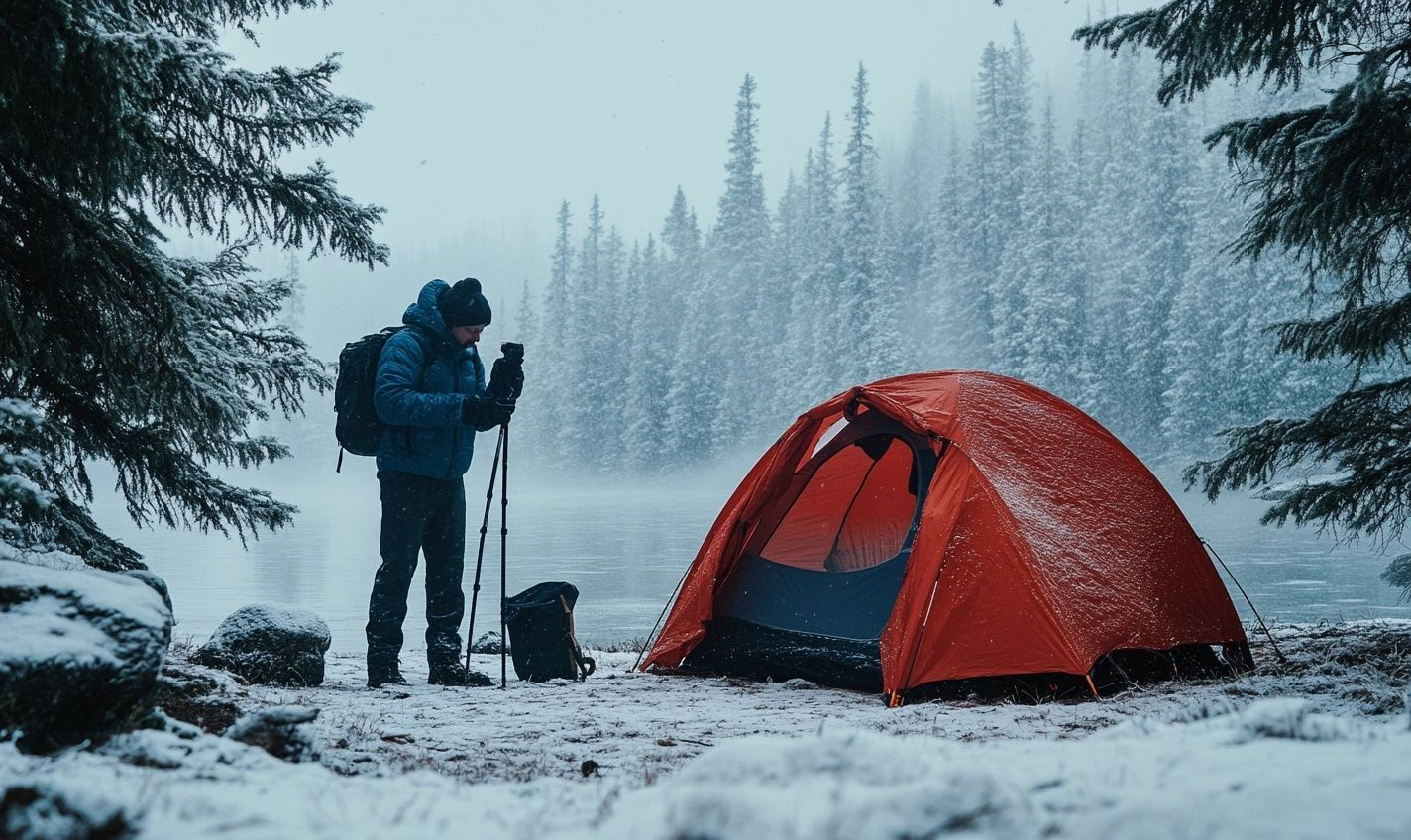
Knowing When to Seek Shelter in Cold Conditions
When you’re out camping in cold weather, it’s crucial to know when to seek shelter to avoid the risk of hypothermia. Being aware of your body’s signals and the environmental conditions can make all the difference in ensuring your safety.
Recognize the Symptoms of Hypothermia
Do you know how to spot the signs of hypothermia? Shivering, fatigue, confusion, and slowed pulse are all cues that your body is losing heat too quickly. Ignoring these symptoms can be dangerous, so it’s essential to act swiftly.
Understanding How Cold Weather Impacts the Body
Do you understand how cold weather affects your body? Exposure to low temperatures can lead to heat loss at a rapid pace, putting you at risk of hypothermia. Knowing this can help you take the necessary precautions.
Here are a few tips to help you recognize and avoid hypothermia while camping:
- Stay dry by wearing appropriate clothing and layers.
- Keep moving to generate body heat.
- Stay hydrated and consume warm, high-calorie foods.
Essential Cold Weather Safety Tips for Campers
What are the must-know safety tips for cold weather camping? Being prepared with the right gear, knowing your limits, and seeking shelter when needed can make all the difference in your outdoor experience.
Here are a few key points to remember:
- Always carry a reliable weather forecast.
- Inform someone of your camping plans and check-in regularly.
- Be aware of early signs of hypothermia in yourself and others.
Proper Dressing Techniques to Prevent Hypothermia
Are you dressing appropriately for cold weather camping? Layering your clothing, wearing moisture-wicking fabrics, and protecting your extremities can help prevent heat loss and keep you safe from hypothermia.
Remember, when it comes to cold weather camping, your safety should always be a top priority. Knowing when to seek shelter and how to recognize and avoid hypothermia can ensure you have a warm and enjoyable outdoor experience. Stay safe out there!
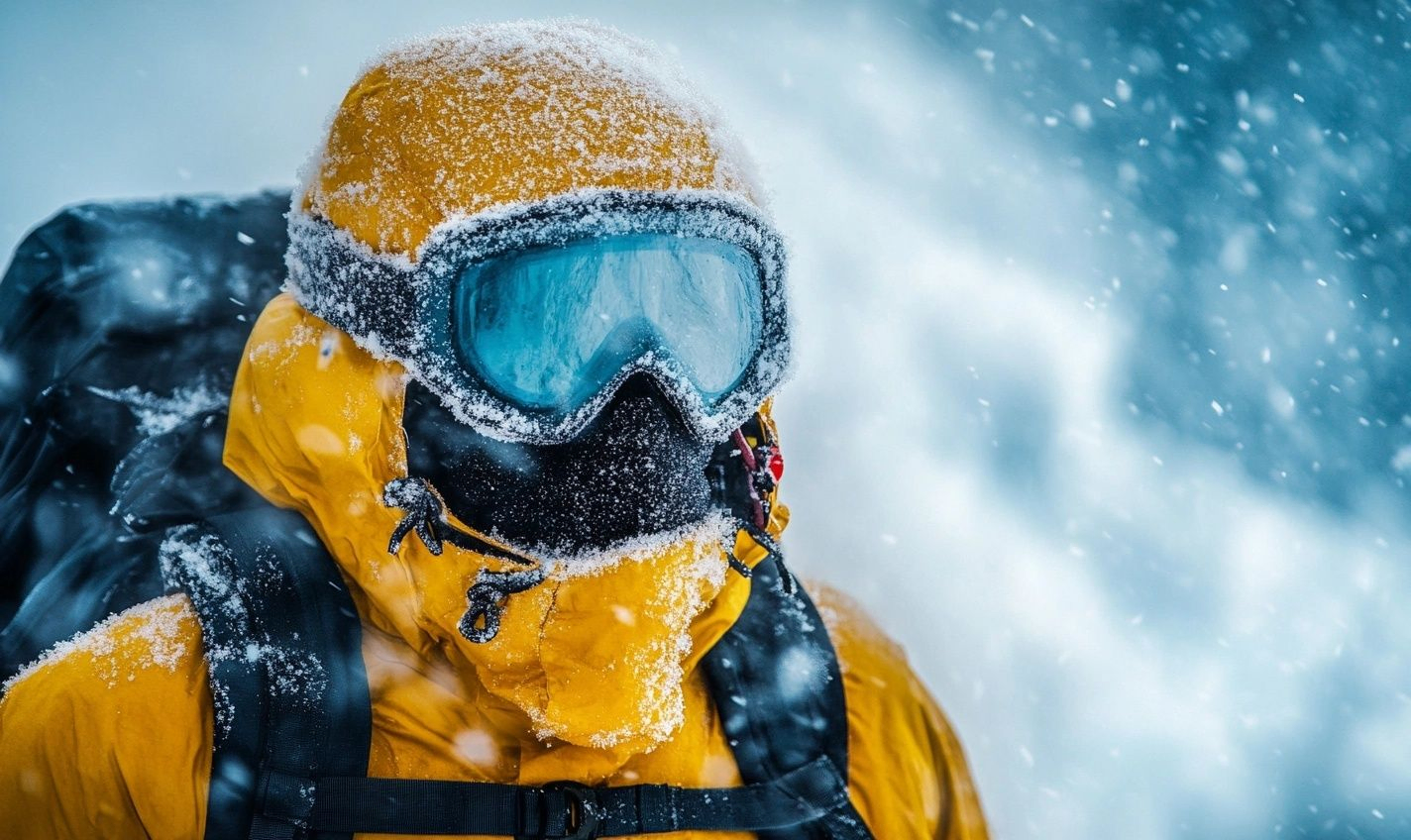
Proper Dressing Techniques to Prevent Hypothermia
When it comes to avoiding hypothermia while camping in cold weather, dressing appropriately is key. Your clothing acts as your first line of defense against the cold, helping to retain heat and keep your body temperature stable. Here are some essential tips for proper dressing to prevent hypothermia:
Layer Up
Wearing multiple layers of clothing traps warm air between them, providing insulation. Opt for moisture-wicking base layers, insulating mid-layers, and a waterproof outer shell to protect against wind and rain.
Wear a Hat and Gloves
Heat escapes through your head and extremities, so wearing a hat and gloves is crucial. Choose materials that are breathable yet insulating to keep these areas warm.
Insulate Your Feet
Invest in high-quality insulated socks and waterproof boots to keep your feet warm and dry. Cold, wet feet can drastically increase your risk of hypothermia.
Avoid Cotton
Cotton retains moisture and takes a long time to dry, making it a poor choice for cold weather camping. Opt for synthetic or wool materials that wick moisture away from your skin.
Remember, hypothermia can sneak up on you, even when the weather doesn’t seem too extreme. Recognizing the symptoms early and taking preventive measures is crucial to staying safe and enjoying your camping experience to the fullest.
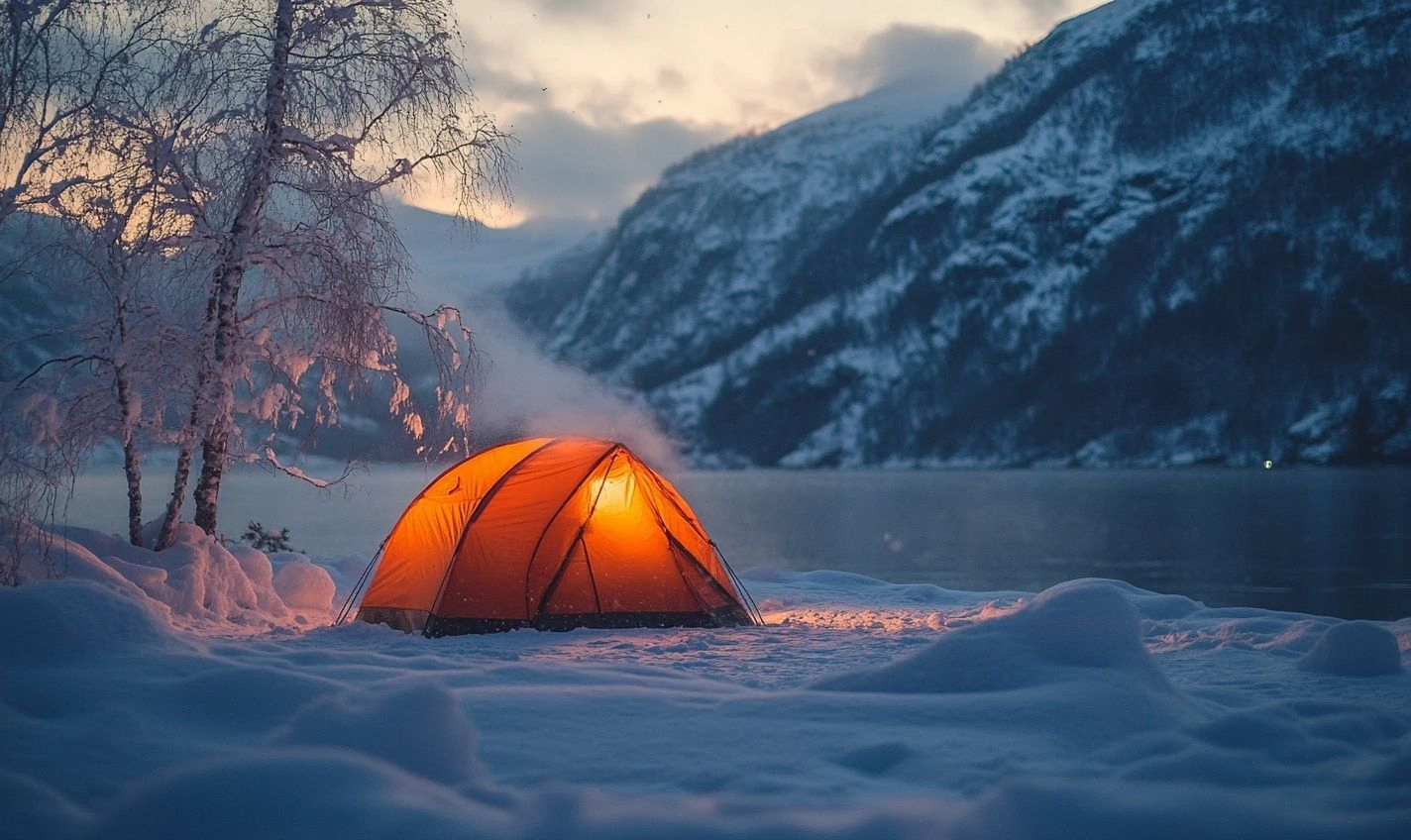
Signs Your Body is Losing Heat Too Quickly
Feeling the Chill: How to Recognize Hypothermia
Being able to recognize hypothermia early on is crucial when camping in cold conditions. Look out for these signs:
- Shivering uncontrollably
- Slurred speech
- Confusion or memory loss
Avoiding the Freeze: Tips to Avoid Hypothermia
Prevent hypothermia from setting in by taking the following precautions:
- Stay dry at all times
- Layer clothing for insulation
- Eat high-energy food regularly
And what if you start feeling like your body is losing heat too quickly? Cold weather safety relies on your ability to self-assess and take swift action. So, how do you know when your body is struggling to maintain its temperature?
But the signs may not always be overt. It’s not just about shivering uncontrollably; understand how cold weather impacts the body by paying attention to subtler cues. Symptoms like numbness, drowsiness, or a slower-than-normal heartbeat can signal that your body is losing heat faster than it can produce it.
So, educate yourself today on the essential cold weather safety tips for campers and outdoor enthusiasts. Knowing when to seek shelter in cold conditions can be a life-saving skill. Don’t wait until you’re already on the brink of hypothermia; be proactive in warding off the chill.
Moreover, proper dressing techniques are key in preventing hypothermia. Think of your clothing as armor against the cold. Each layer you wear adds a protective barrier, shielding you from the icy grip of the elements.
Remember, effective ways to keep warm in cold weather don’t just involve bundling up. It’s also about staying active, staying hydrated, and staying informed about weather changes. When in doubt, err on the side of caution.
In conclusion, staying safe in cold weather is all about mindfulness and preparedness. Don’t underestimate the power of the elements, but don’t let them deter you from enjoying the great outdoors. With the right knowledge and gear, you can conquer any cold-weather challenge that comes your way.
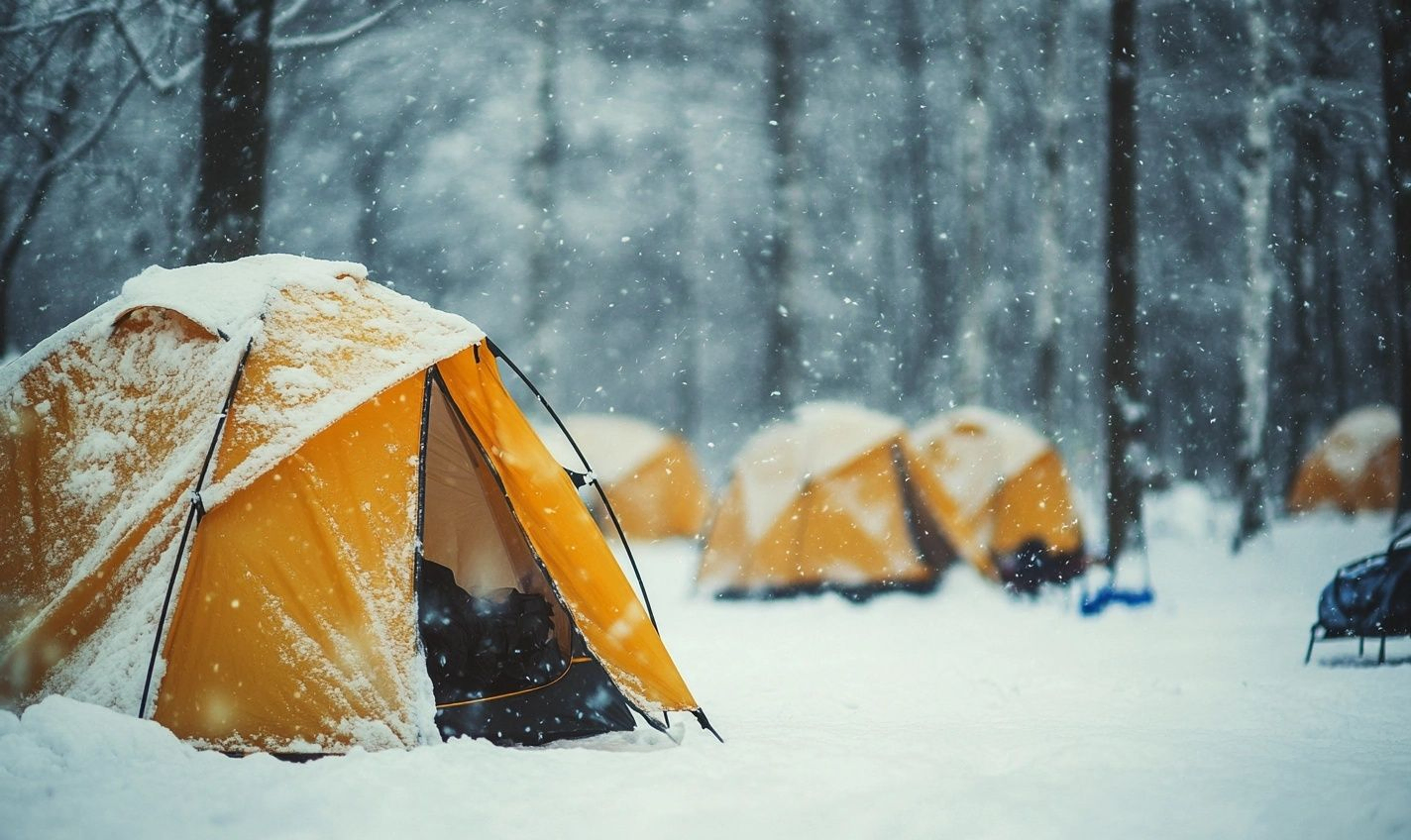
Effective Ways to Keep Warm in Cold Weather
When you’re out camping in chilly conditions, staying warm is crucial for your safety and comfort. Here are some practical tips to help you beat the cold and enjoy your outdoor adventure to the fullest:
Layer Up Smartly
Instead of wearing one thick layer, opt for multiple light layers. This way, you can adjust your clothing based on your activity level and the changing weather conditions.
Insulate Your Body Heat
Wrap yourself in thermal blankets or use a sleeping bag designed for cold weather camping to trap body heat and stay warm throughout the night.
Keep Your Head and Extremities Covered
Wear a snug beanie or hat to prevent heat loss from your head and don’t forget to layer your gloves and socks to keep your extremities warm.
Fuel Up with Warm Foods and Drinks
Warm up from the inside out by consuming hot soups, teas, and high-calorie foods that provide your body with the energy it needs to generate heat.
Stay Active to Generate Heat
Engage in physical activities that get your blood pumping and help you generate body heat naturally. A short hike or some jumping jacks can do wonders for keeping you warm.
Remember, hypothermia can sneak up on you when you least expect it, so it’s crucial to take proactive measures to avoid it. By following these simple yet effective tips, you can ensure that your camping trip remains safe, enjoyable, and warm, even in the coldest of conditions!
Conclusion
As you embark on your camping adventures, it’s crucial to remember the potential risks of hypothermia in cold weather conditions. By recognizing the symptoms and taking preventive measures, you can ensure a safe and enjoyable outdoor experience.
Remember to dress in layers, stay dry, and seek shelter if needed. Be mindful of the signs of hypothermia in yourself and others, such as uncontrollable shivering, confusion, and fatigue.
Always pack extra warm clothing, blankets, and high-energy snacks to keep your body fueled and maintain warmth. It’s essential to be prepared for any weather changes that may occur during your trip.
By following these hypothermia tips and practicing cold weather safety, you can mitigate the risks and enjoy your camping trip to the fullest. Stay informed, stay warm, and most importantly, stay safe in the great outdoors!
Frequently Asked Questions (FAQs)
What is hypothermia?
Hypothermia is a medical emergency that occurs when your body loses heat faster than it can produce heat, causing a dangerously low body temperature.
How can I recognize hypothermia?
Symptoms of hypothermia include shivering, confusion, slurred speech, drowsiness, and weak pulse. It’s crucial to be able to spot these signs early.
What are some tips to avoid hypothermia in cold weather?
Wear layers of clothing, stay dry, seek shelter from wind and moisture, stay hydrated, and keep active to generate heat and prevent hypothermia.
Why is cold weather safety important during camping?
Proper cold weather safety measures are essential to prevent hypothermia and other cold-related illnesses, ensuring a safe and enjoyable camping experience.
Can hypothermia be deadly?
Yes, severe hypothermia can be life-threatening if not treated promptly. It’s crucial to take hypothermia seriously and seek help immediately when needed.

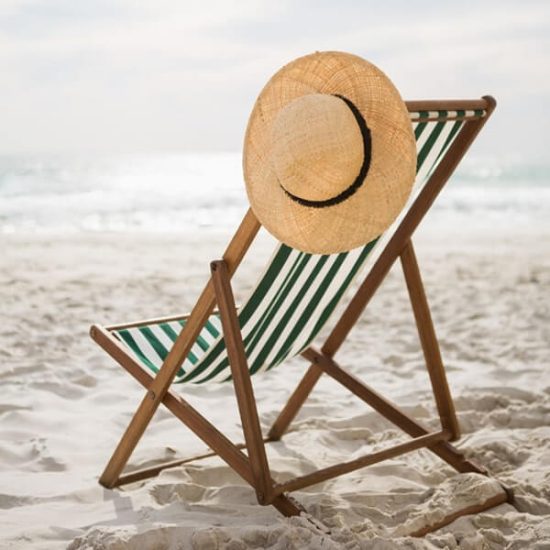


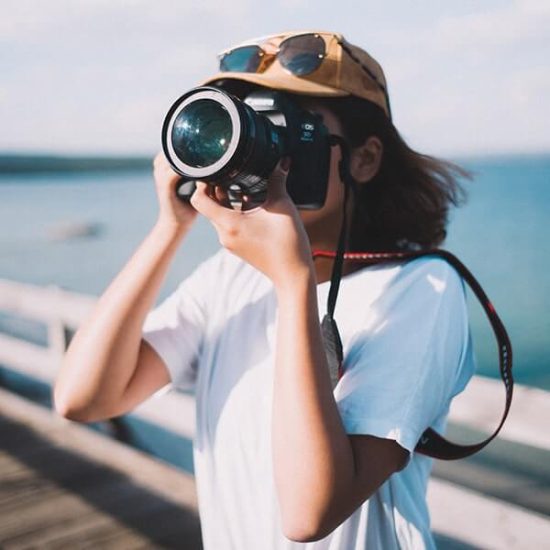

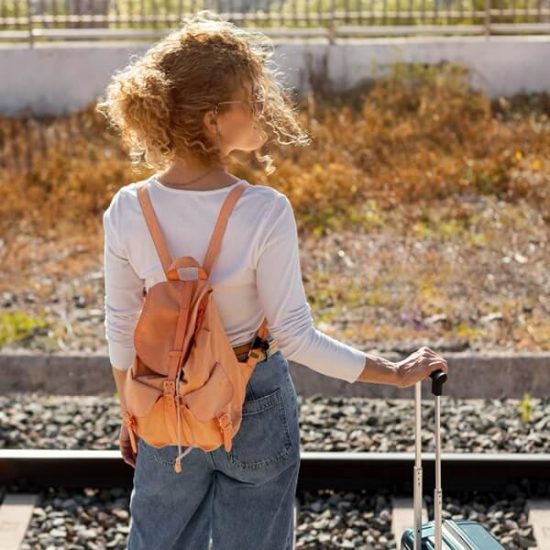
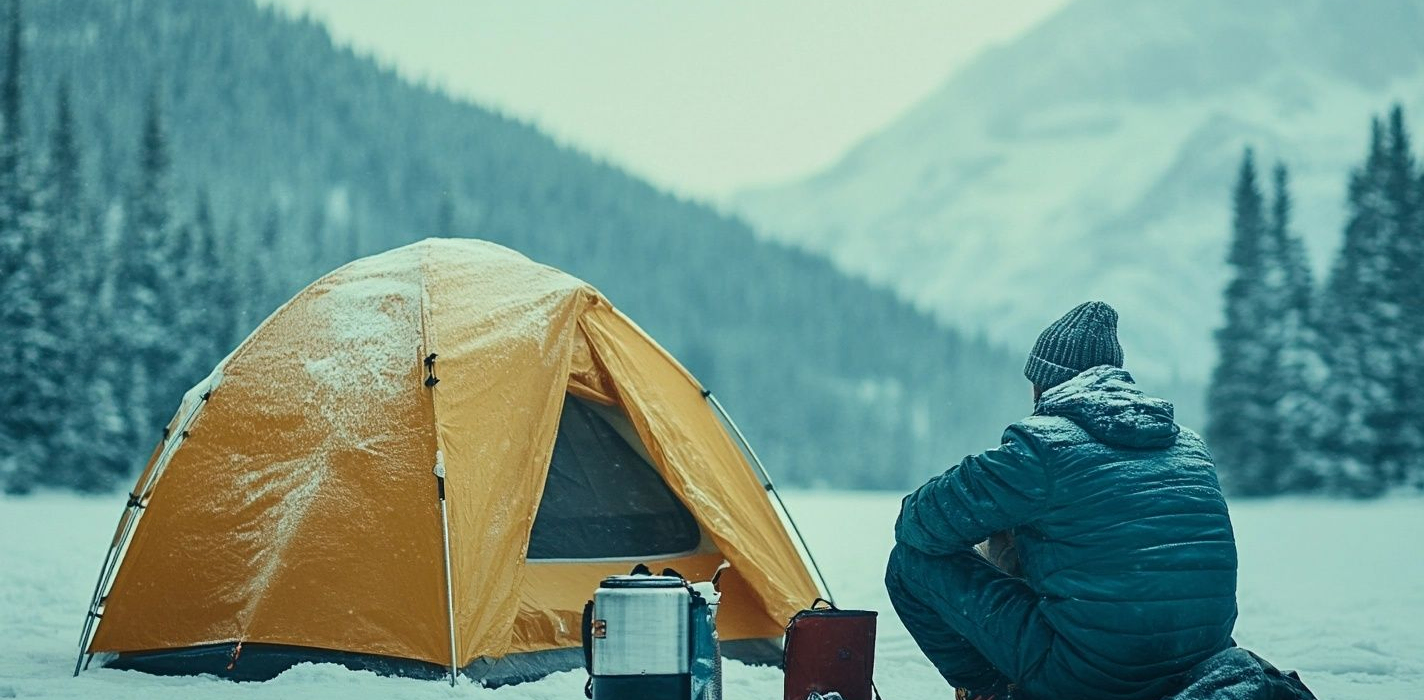
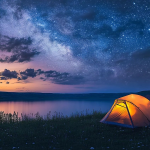
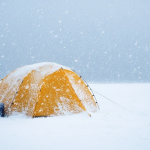
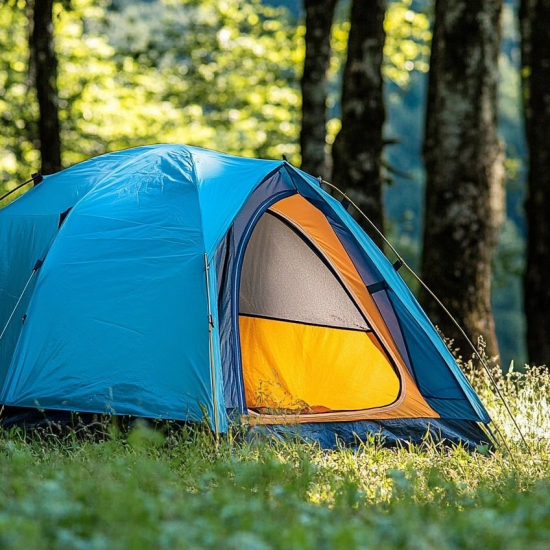
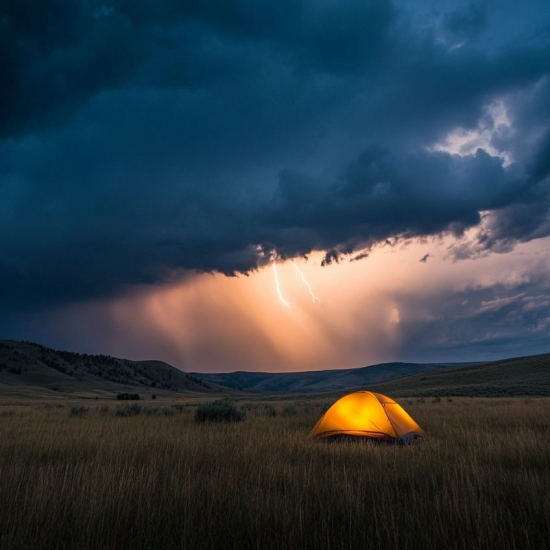
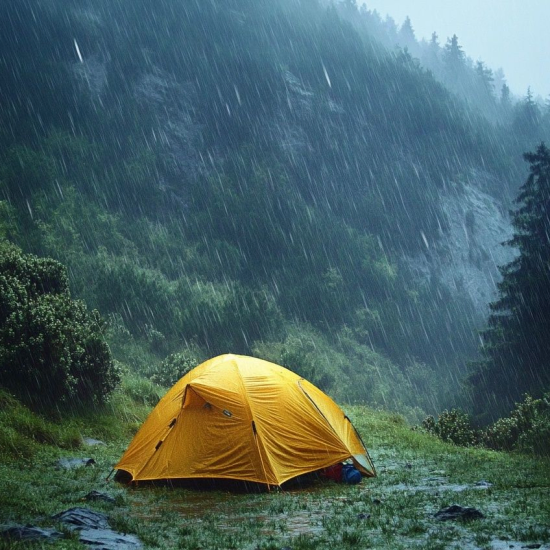
No Comment! Be the first one.